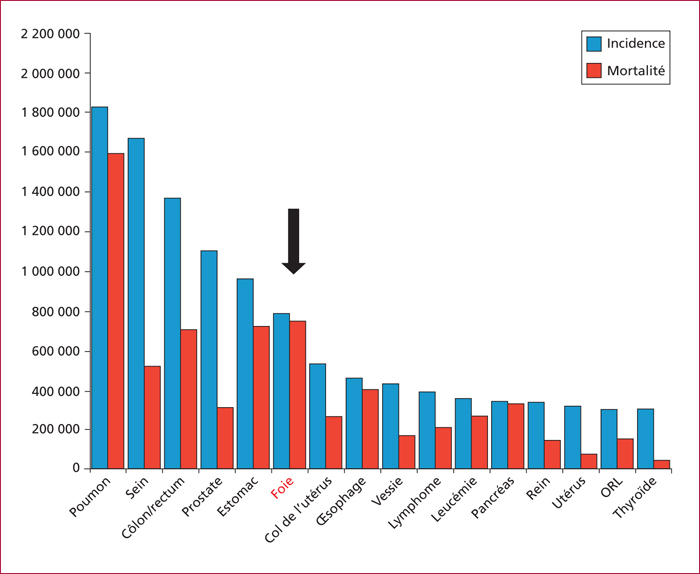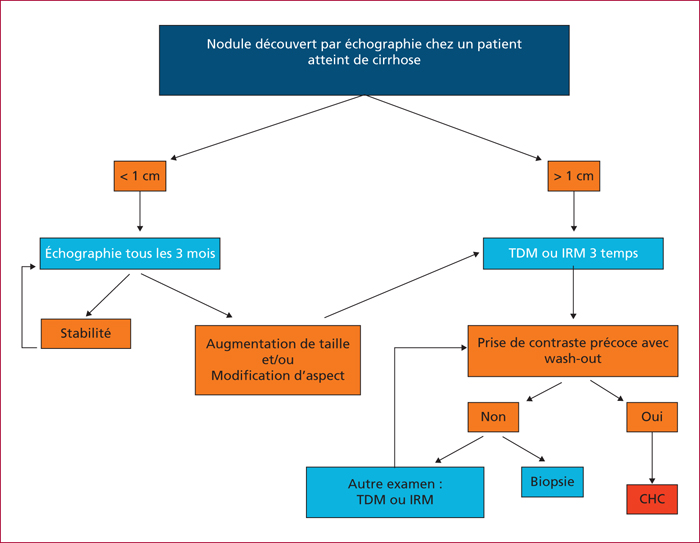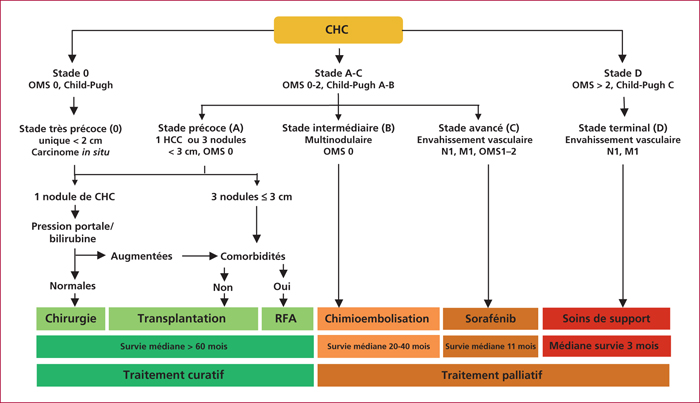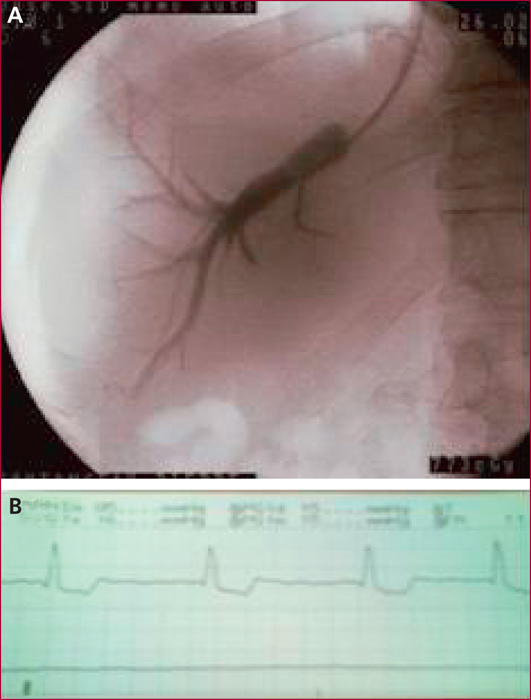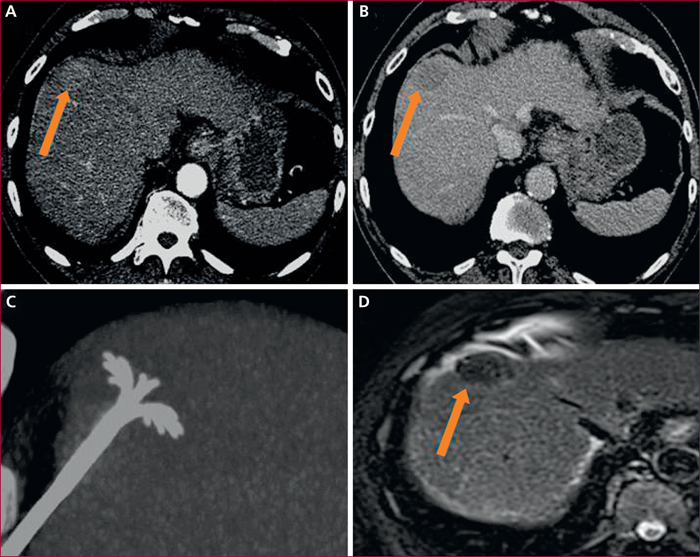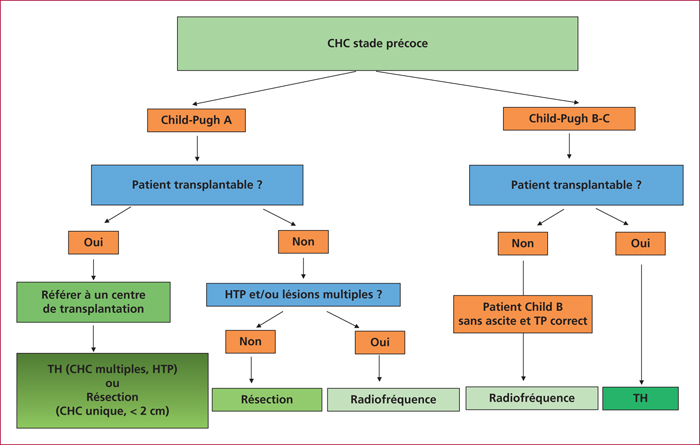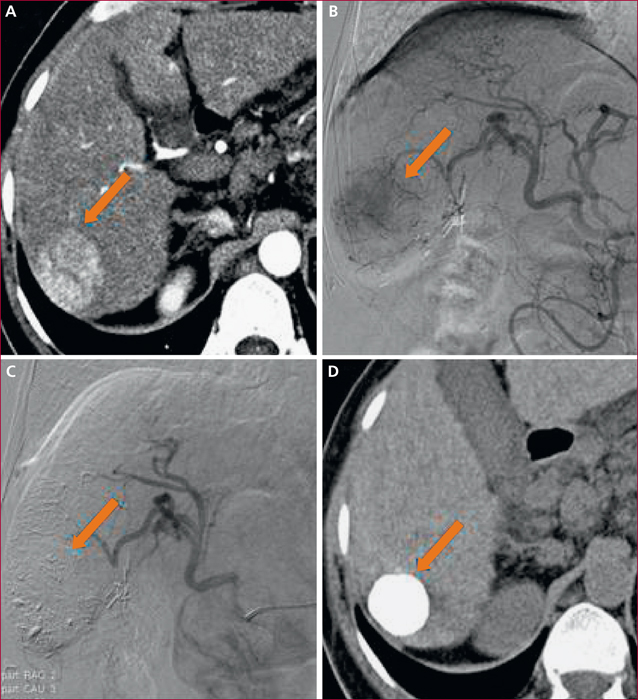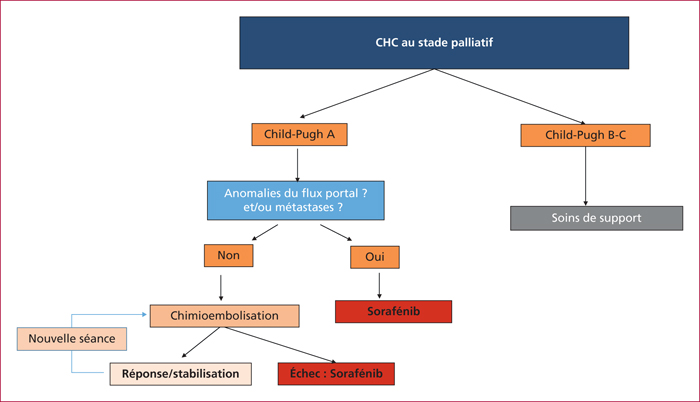Hépato-Gastro & Oncologie Digestive
MENUHepatocellular carcinoma: screening, diagnosis and treatment Volume 23, issue 1, Janvier 2016
Figures
Tables
Hôpital Purpan,
service d’hépato-gastro-entérologie,
Place du Dr Baylac,
31059 Toulouse Cedex,
France
Hôpital Rangueil,
service de chirurgie digestive et hépato-biliaire,
Toulouse,
France
Hôpital de la Croix Rousse,
service d’hépato-gastro-entérologie Lyon,
France
- Key words: hepatocellular carcinoma, cirrhosis, transplantation, radiofrequency, chemoembolisation, sorafenib
- DOI : 10.1684/hpg.2015.1248
- Page(s) : 46-64
- Published in: 2016
Hepatocellular carcinoma is one of the leading causes of death in patients with cirrhosis. Biannual ultrasound screening improves the prognosis. The diagnosis is based on histological analysis of a tumor biopsy but an exclusive radiological diagnosis is possible in a patient with cirrhosis when the lesion is typical on a contrast-enhanced study. In France, only 20% of patients are diagnosed during a screening program. Achieving a wider application of screening is a public health issue. At diagnosis, only one fourth of patients have an early disease, ie a single tumor under 5 cm or 3 tumors less than 3 cm, enabling to offer a curative treatment. The latter can be liver transplantation, surgical resection or percutaneous destruction. Treatment decision takes into account the extent of the disease, underlying liver functions and the patient's general condition and should be discussed in a dedicated multidisciplinary meeting. If the disease is beyond the limits for a curative treatment, only patients with preserved liver functions (Child A) and a good general status are accessible to specific treatments. These are chemoembolization if the disease is in the intermediate stage (multinodular without venous invasion or metastasis) and sorafenib, an antiproliferative and antiangiogenic targeted therapy when the patient is in the advanced stage. Sorafenib is the only molecule that showed an improvement in overall survival at an advanced stage. New treatments are being evaluated and will probably expand the therapeutic arsenal particularly radioembolisation and radiotherapy for the early and intermediate stages and immunotherapy for the advanced stage.


